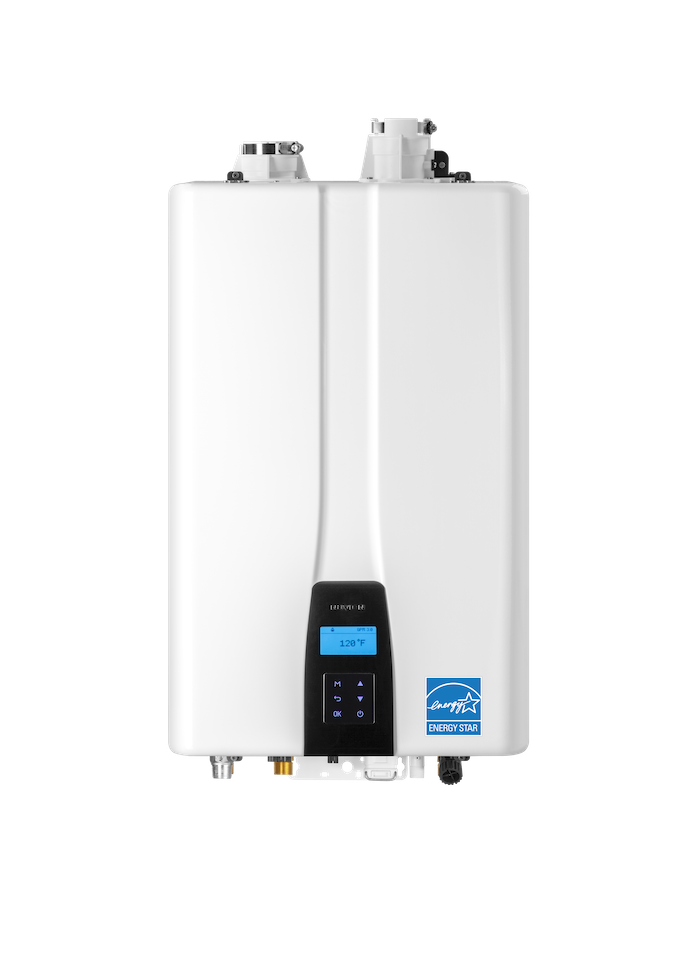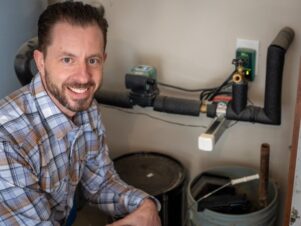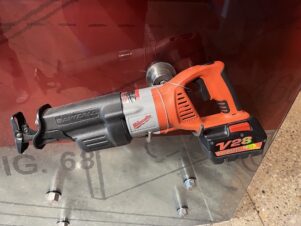When it comes to 2021 industry forecasts, the most resonant word I hear is optimistic. But that word can become hollow if it doesn’t have any substance backing it up. Now I’ve read reports that residential service repair and remodel may remain constant with a slight increase in early 2021. On the other hand, according to AIA info, there is a predicted 5.7% decrease in construction spending—hotels, office buildings, recreation—for 2021, with pent-up demand leading to anticipated growth in 2022.
 Mechanical Hub continues its Forecast Series with Brian Fenske, director of commercial business, Navien. According to Fenske, the outlook for the tankless looks strong as the recent southern storms “had a huge impact and pushed new units into the market because of availability.” But Fenske cautions, “Raw materials may become a factor in the future.”
Mechanical Hub continues its Forecast Series with Brian Fenske, director of commercial business, Navien. According to Fenske, the outlook for the tankless looks strong as the recent southern storms “had a huge impact and pushed new units into the market because of availability.” But Fenske cautions, “Raw materials may become a factor in the future.”
Yet, today, Navien’s suite of tankless and boiler units continues to grow and improve, evidenced by the recent release of its NPE-2 (left) Series tankless water heaters and its NCB-H condensing combi boiler, NFC-H condensing fire tube combi boiler and NFB-H condensing fire tube boiler.
We sat down with Fenske recently and he talked about the state of the industry.
MH: What does the short-term economy look like as it relates to Navien?
FENSKE: I concur with the residential hopes and optimistic outlook, many housing markets remain strong, as well as the economy in general. This drives the new and existing housing and construction improvements, upgrades and replacement markets.

Fenske with his wife, Julie.
MH: What are some indicators you look at to determine trends, movements, etc.?
FENSKE: I watch several construction reports, mainly commercial being my responsivity and arena. Regarding commercial, nonresidential building starts fell 11% during the month of December, while total nonbuilding starts were 5% lower. This while residential starts were essentially flat over the month of December. Starts were lower in three of the four regions in December; the South Central was the only region to post an increase. For the full year of 2020, total construction starts fell 10% to close to $775 billion. Nonresidential building starts saw the steepest drop, losing 24%, while nonbuilding starts fell 14%. Residential construction starts ended 2020 up 4% thanks to strong single family activity.
MH: I read somewhere that at the rate the U.S. is distributing the vaccine, we should be back to “normal” by 2024. Perhaps that’s a bit overly dramatic, but how does (has) Navien positioned itself from the “fallout” of COVID-19?

Fenske with a friend during the Builder’s Show last year right before COVID hit the U.S.
FENSKE: Navien continues to do business as usual, as well as adjust to the new ways we all must adhere to, to perform our job and its functions. I myself cannot wait to get back to personal interactions and travel. But in the meantime our adjusted way of life and concerns for everyone’s safety has surely made our business climate a lot different.
MH: Is the only certainty heading into early 2021 uncertainty? How do you forecast and budget for such uncertainty? (Or is it fairly certain at this point during the pandemic?) (Certainly, a lot of certainty here, lol)
FENSKE: My largest concern is mostly that new start construction follows a delayed schedule. If planning is and was off 10-25% in 2020, depending on construction class, this will have a definite effect on the future. As most commercial planning and design is planned 6-18 months into the future, 2021 will surely see a slowdown as an effect of less construction being booked for the future. However, I have to and continue to remain optimistic that retrofit and design build will continue to carry the industry and look forward to a not so much dismal year ahead. Navien will continue to forecast growth in product sales and market share sticking to our plan that we will continue to succeed through our employees, partners and especially our new product offerings in 2021.
MH: Without getting overly political, does a change at the presidential level (and congress) change the outlook for your company, if at all? (Infrastructure, regulations, green energy initiatives, etc.)
FENSKE: There is always concern when there are political changes. I don’t think anyone could pick the perfect president, as well as the members of Congress. We have to watch and observe as well as participate to further the successes of our industry and country.



